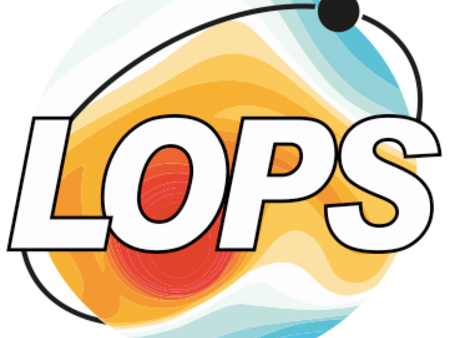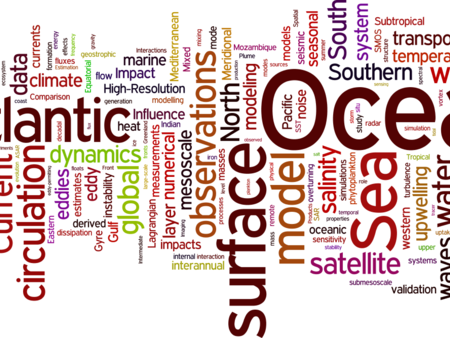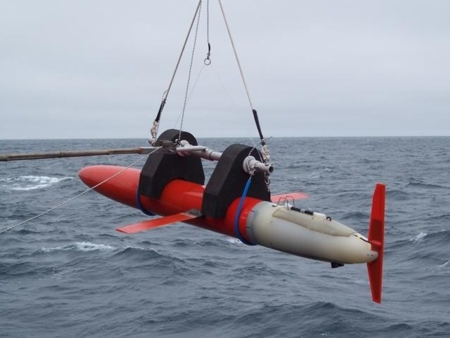ANDRO
ANDRO: An Argo-based deep displacement dataset
Michel Ollitrault (LPO, IFREMER, France) & Jean-Philippe Rannou (ALTRAN, France)
To cite dataset : Ollitrault Michel, Rannou Philippe (2013). ANDRO: An Argo-based deep displacement dataset. SEANOE. http://doi.org/10.17882/47077
A world deep displacement dataset, named ANDRO, after a traditional dance of Brittany meaning a swirl, comprising more than 600 000 deep displacements, has been produced from the Argo float data.
Presently this dataset contains Argo float displacements before January 1st 2010. All Argo data prior to that date has been collected from the Data Assembly Centers (DACs): AOML, Coriolis, JMA, CSIRO, BODC, MEDS, INCOIS, KORDI, KMA and CSIO .
One important feature of ANDRO is that the pressures measured during float drifts at depth, and suitably averaged are preserved in ANDRO. To reach this goal, it was necessary to reprocess most of the Argo raw data, because of the many different decoding versions (roughly 100) not always applied by the DACs to the displacement data because they were mainly interested in the p,t,S profiles. The result of our work was the production of comprehensive files, named DEP (for déplacements in French), containing all the possibly retrievable float data.
From the 6302 DEP files thus created (there are one DEP file per float), the ANDRO ASCII file is generated. Although the DEP files are available (DEP_files_20151202.7z or DEP_files_20151202.zip), we think most scientific users will be satisfied with the much simpler and synthetic ANDRO dataset (ANDRO_20151202.dat or in compressed forms ANDRO_20151202.zip or ANDRO_20151202.7z).
Three papers describing precisely the work we have done are available : ANDRO_JAOT_2013.pdf, ANDRO_NL_Coriolis.pdf or Argonautics12_extract.pdf (the latter two being shorter versions of the first one).
ANDRO actual contents and format is described in ANDRO_Format_2013.pdf, which must be read before using ANDRO (ANDRO format is also described in ANDRO_JAOT_2013.pdf).
DEP file format is also fully described in ANDRO_Format_2013.pdf (and in ANDRO_JAOT_2013.pdf, where however TABLE D4 is now outdated).
ASCII file WMO_DAC_FloatType_TransSystem_20151202.txt catalogs the float information included into the (last version) ANDRO dataset. This file contains four columns:
1. WMO float ID,
2. DAC where float data are stored,
3. Float type,
4. Transmission system.
ASCII file describes the notation of the DAC names, as follows:
1. AOML (USA)
2. CORIOLIS (France)
3. JMA (Japan)
4. BODC(UK)
5. MEDS (Canada)
6. INCOIS (India)
7. KMA (South Korea)
8. CSIRO (Australia)
9. CSIO (China)
10. KORDI (South Korea)
ASCII file describes the notations of the float types, as follows:
1. APEX
2. ARVOR
3. NEMO
4. NINJA
5. PROVOR
6. SOLO SIO
7. SOLO WHOI
ASCII file gives the satellite transmission system used, as follows:
1. ARGOS
2. IRIDIUM or ORBCOMM
Any remark or error will be welcomed.
Mail to michel.ollitrault_at_ifremer.fr or jean-philippe.rannou_at_altran.com.
Important Note :
Argo public NetCDF files are found on any of the two Global Data Assembly Center websites (http://www.usgodae.org/argo/ or http://www.coriolis.eu.org/).
Using this then available Argo data, Yoshinari, Maximenko & Hacker, at the University of Hawaii first produced an atlas of velocity estimates (YoMaHa’05), in 2006. This atlas is regularly updated (YoMaHa’07) using the latest Argo public NetCDF files (http://apdrc.soest.hawaii.edu/projects/Argo/data/trjctry/). However the parking pressure is given as the nominal pressure, not the measured one, which may result in an error.
Fortunately, the DACs are presently implementing a detailed trajectory file format (for containing all the measured pressure at depth, …), following much of our DEP file format. It is hoped that this will permit, in the future, an easy update of ANDRO as well as a refinement of YoMaHa’07.
ANDRO files:
Old versions:
ANDRO_20121129.zip (57Mo)
ANDRO_20121129.7z (39Mo)
ANDRO_20130322.zip (57Mo)
ANDRO_20130322.7z (40Mo)
ANDRO_20140218.zip (62Mo)
ANDRO_20140218.7z (43Mo)
ANDRO_20140218.dat (202Mo)
Last version:
ANDRO_20151202.zip (64Mo)
ANDRO_20151202.7z (45Mo)
ANDRO_20151202.dat (212Mo)
Actual contents and format:
ANDRO publications:
DEP files (last version):
DEP_files_20151202.7z (640Mo)
DEP_files_20151202.zip (1018Mo)
Matlab files: (Example programs to read the ANDRO dataset or the DEP files)







